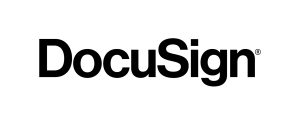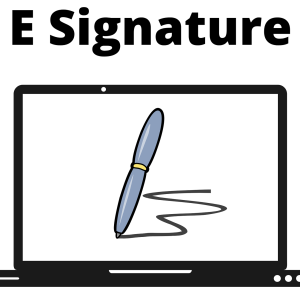Pen and paper authentication is quickly becoming a thing of the past. Ronan Copeland, below, Group Vice President & General Manager EMEA, DocuSign, looks at how digital processes simplify processes to enable smarter, safer, and more trustworthy ways of working.
 Trust lies at the heart of any company. Not only in the products and services it offers to its customers, but also in the very core of how it operates and does business. This is certainly true with the advent of digital transformation, as all users need to trust and feel comfortable that the processes being used are safe and secure.
Trust lies at the heart of any company. Not only in the products and services it offers to its customers, but also in the very core of how it operates and does business. This is certainly true with the advent of digital transformation, as all users need to trust and feel comfortable that the processes being used are safe and secure.
Over the last two years, leaders have faced an unprecedented amount of upheaval, and regardless of how far along their digital transformation, had to make quick and hard decisions to keep operations running. The most innovative put trust in the security and integrity of digital processes, such as e-signatures and digital agreements to underpin infrastructures and allow business to continue to operate, if not flourish.
Now, as the world of work reopens, there may be an urge to return to old ways of working. But the world has changed, whether driven by the ‘anywhere economy’, the need to be more data compliant, or to ensure there is greater governance along the value chain. In the new ‘present’ of work we must continue to put trust in e-signatures and digital agreements.
The Urgency Around Data Privacy
For businesses to grow and globally excel, trust in data is paramount. To achieve this, the right digital processes, such as e-signatures, need to be put in place, so that those sharing, handling, and distributing often sensitive information, are reassured that it is safe and secure.
E-signatures have been in use for over two decades but in the last two years have become the norm. This is not only because e-signatures are more efficient than so-called wet signatures, eliminating manual tasks and increasing convenience along the value chain, but organisations found them a smarter, faster, and more secure way of signing and handling legal agreements.
As a result, 88% of global respondents to a survey for DocuSign, don’t envisage their organisations going back to pen and paper agreements now they have used an e-signature solution, as information security remains their highest priority.
E-signatures have the same legal validity as traditional ‘wet’ signatures, if not more. The Electronic Communications Act 2000 and the Electronic Signatures Regulation 2002 made electronic signatures legal in England, Northern Ireland, and Wales.
Furthermore, unlike wet signatures, e-signatures come with a digital record that serves as a digital audit trail and proof of the transaction. This includes the history of actions taken with the document, including the details of when it was opened, viewed, and signed. This adds an additional layer of trust in the signing process.
DocuSign has implemented rigorous policies and processes to meet the privacy, security, and compliance requirements of some of the most stringent certifications around the world. It is committed to ensuring trust is at the core of its business by providing world-class protection.
By securing and protecting not only an organisation’s agreements, but also its critical business and personal information, DocuSign has built trust into the very fabric of its digital solutions. It is no wonder that DocuSign eSignature has been used in more than one billion transactions across over 180 countries to create legally enforceable agreements – making it an essential and trusted digital asset for all.
Reducing Remote Working Identity Risks
The ‘Anywhere Economy’ has accelerated at pace in the last two years, with remote working becoming an accepted part of business. As a result, knowing who has access and oversight in the remote passing of often sensitive information between teams, clients, and third parties is vital.
84% of businesses say certainty about user ID reduces risk, therefore trusting the right person is signing an agreement is a key part of reducing business risk and, in turn, building trust. This can readily be achieved with e-signatures as multiple layers of protection and authentication are built into the technology.
Should greater assurance be required, DocuSign Identify, part of the DocuSign Agreement Cloud, provides digital signer identification and authentication by accessing the world’s largest network of identity verification and trust service providers.
E-signatures not only offer a more robust audit trail than their pen and paper counterparts, but they also give peace of mind that the documents are enforceable should a dispute occur down the chain. By integrating signing and enhanced identification or authentication methods into one connected DocuSign eSignature experience, it helps organisations protect high value agreements, reduce risk, and support greater compliance. Once the signing process is complete, all documents are digitally sealed using Public Key Infrastructure (PKI), an industry-standard technology. Combined, these technologies ensure that electronic signatures are more secure than any paper alternative.
 It is this transparency that forms the bedrock of trust in digital processes. As the business world engages even more with digital transformations, remote working will become the norm and old manual processes give way to digital procedures, we must trust in the underlying technology that makes all this possible. By engaging with tools that employ strong security mechanisms and robust operational processes to meet or exceed the highest international security standards, businesses can trust that their data is private, safe, and secure.
It is this transparency that forms the bedrock of trust in digital processes. As the business world engages even more with digital transformations, remote working will become the norm and old manual processes give way to digital procedures, we must trust in the underlying technology that makes all this possible. By engaging with tools that employ strong security mechanisms and robust operational processes to meet or exceed the highest international security standards, businesses can trust that their data is private, safe, and secure.


